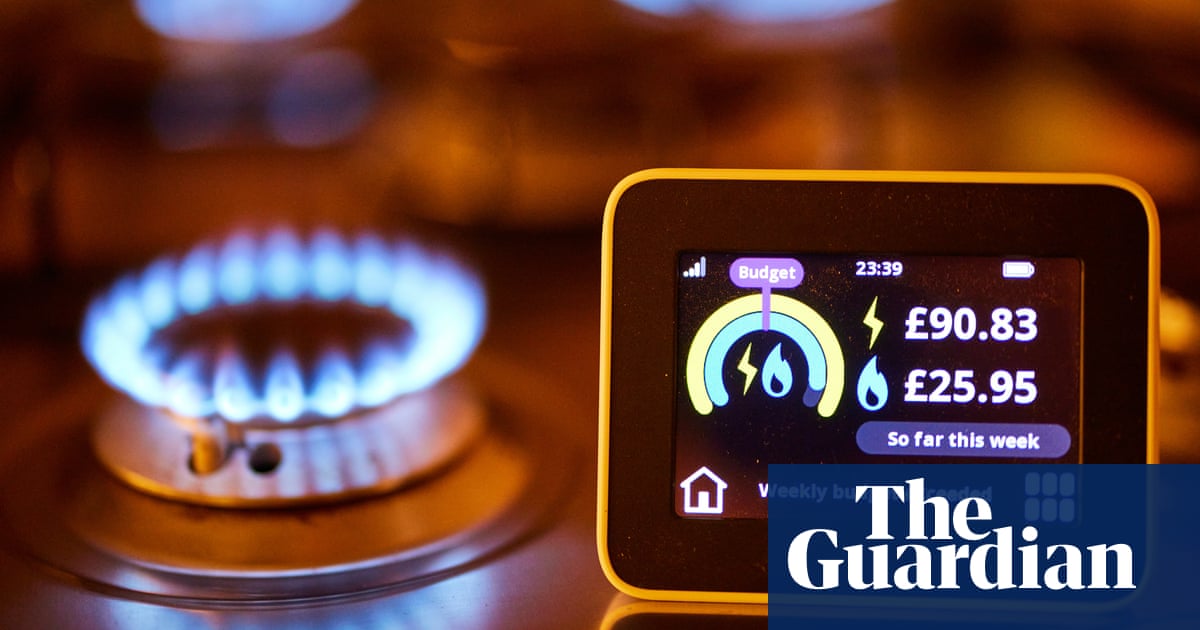The energy price cap in Great Britain will fall by £238 to £1690 this spring as a mild winter and lower gas prices ease pressure on household finances.
The 29 million households in England, Wales and Scotland can expect to pay the average annual bill from April after the energy regulator Ofgem dropped the price cap by 12.3% from £1,928 in the current quarter.
Wholesale gas prices have fallen as a mild winter in Europe reduced demand, helped by plentiful supplies of liquified natural gas in Europe and Asia, leading to a fall in household bills.
The average household will still pay far more for their gas and electricity than before the energy crisis, which started in 2021 and escalated after Russiaâs invasion of Ukraine two years ago. The rate is its lowest since March 2022, when it was £1,277, but far more than the cap of £1,138 for customers paying by direct debt in the summer of 2021, before the crisis began.
The new rate will apply from April to June before it is adjusted again in July. However, the cap does not limit the amount customers pay: those who use more energy pay more.
The energy consultants Cornwall Insight expect the cap to fall again in July, to £1,462, before rising to £1,521 from October.
Analysts had feared disruption to cargoes in the Red Sea could push gas prices significantly higher but rises have not materialised so far.
Ofgem said that, from April, households on prepayment meters will no longer pay higher standing charge than those on direct debit or standard credit. This means metered consumers will save about £49 annually, while direct debit customers will pay £10 more each year.
Jonathan Brearley, the chief executive of Ofgem, said: âThere are still big issues that we must tackle head-on to ensure we build a system thatâs more resilient for the long term and fairer to customers.
âThatâs why we are âlevelisingâ standing charges to end the inequity of people with prepayment meters, many of whom are vulnerable and struggling, being charged more upfront for their energy than other customers.â
The regulator said it had adjusted the calculation of the cap to allow a temporary additional payment of £28 a year to make sure suppliers had âsufficient funds to support customers who are strugglingâ.
The charge will be added to the bills of customers who pay by direct debit and not those on prepayment meters. It will be partly offset by the end of an £11 a year charge that was added to cover debts related to the pandemic.
after newsletter promotion
Dame Clare Moriarty, the chief executive of Citizens Advice, said: âThe government promised a new plan for energy bill support by April 2024 but will miss its own deadline. And the withdrawal of cost of living payments this spring will make it so much harder for many of those already finding it difficult to make ends meet. Without action, people will face a cycle of winter crises year after year.â
Jess Ralston, an analyst at the Energy and Climate Intelligence Unit, said: âWhile falling bills are a blessing for many, they are still 50% higher than pre-crisis levels and are predicted to stay higher because of the high gas price.
âInstead of spending the last two-and-a-half years of the gas crisis investing in insulating homes to reduce bills, the governmentâs existing energy efficiency schemes have flatlined and the prime minister even rowed back on insulation regulations for the private rented sector which will leave renters colder and poorer.â
The increase in gas prices in recent years has led almost every UK energy supplier to offer consumers prices at, or just below, the level of the cap. However, deals designed to encourage consumers to switch are expected to become more commonplace again as the cap falls.
Simon Virley, the head of energy and natural resources at the consultancy KPMG, said: âFive years after introducing a cap on energy prices, and following two years of record high energy prices, consumer appetite for switching suppliers seems to be severely dampened by a perceived lack of deals in the market. With prices now falling rather than rising, hopefully this will spark a new range of fixed price deals.â

